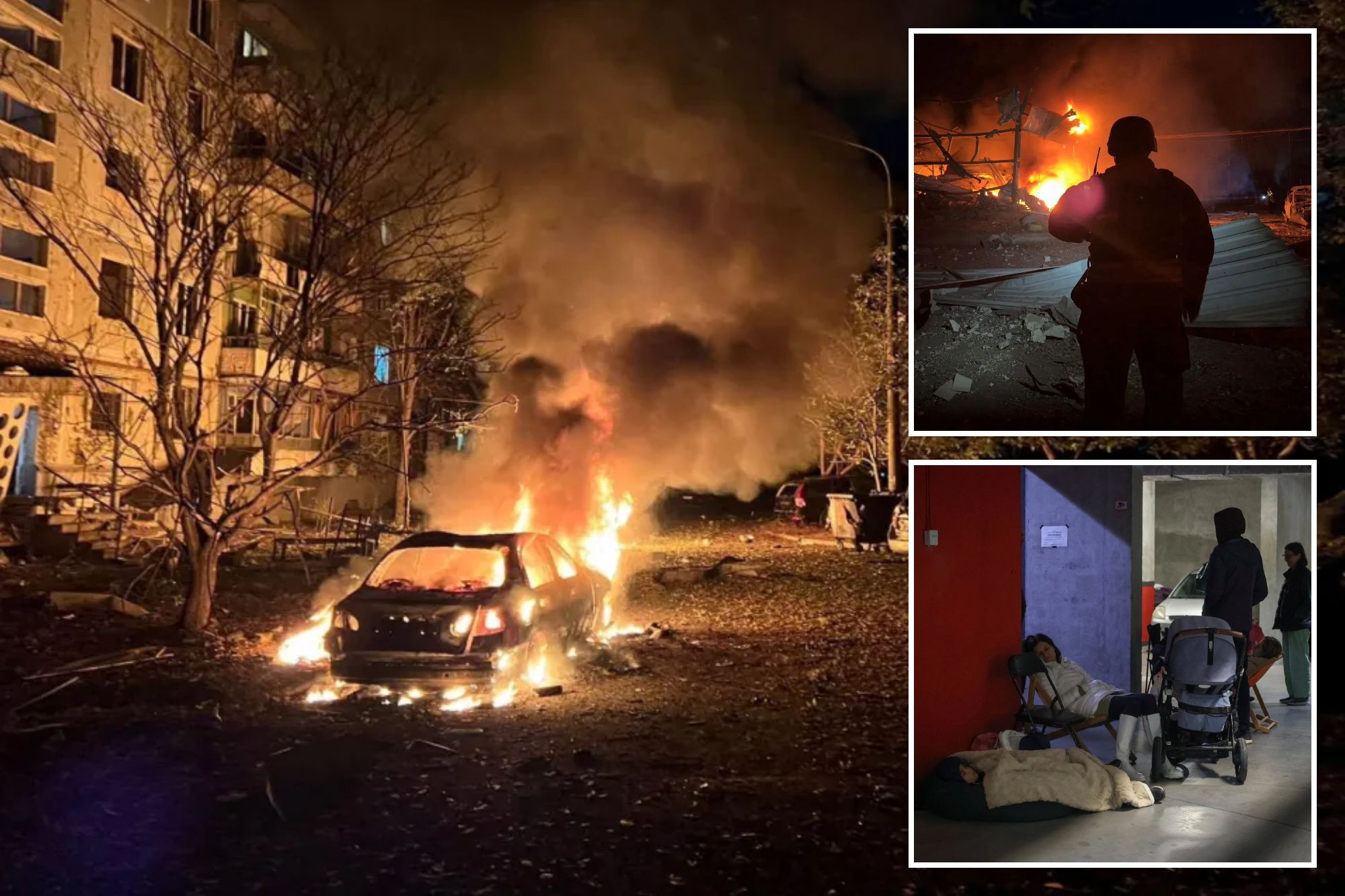Early on Sunday, Russia initiated a series of air strikes targeting western Ukraine, significantly impacting the Lviv region, which is located just 43 miles from the Polish border. The offensive involved a barrage of missiles and drones, compelling Poland, a member of NATO, to activate its air defense systems and scramble jets to secure its airspace.
According to Lviv Mayor Andriy Sadovyi, the assault lasted for several hours, with air defenses responding vigorously to fend off the attacks. Witnesses described the situation as dire, noting that the latest strike represented “definitely the worst hit in Lviv since the beginning of the war.” One source indicated, “We’ve been under a massive attack for about four hours now, and it still continues,” highlighting the relentless nature of the bombardment. Explosions echoed throughout the area, with black smoke rising above the city as air defense efforts persisted.
In response to the escalating threat, Polish authorities increased air patrols following recent reports of suspected Russian drones flying over multiple NATO member states. The Polish operational command issued a statement on social media platform X, confirming that “Polish and allied aircraft are operating in our airspace, while ground-based air defence and radar reconnaissance systems have been brought to the highest state of readiness.” This proactive measure aims to safeguard the airspace and protect citizens, particularly those in regions adjacent to Ukraine.
The heightened vigilance comes as NATO’s eastern allies remain alert after a series of airspace violations. In September, Poland reported the incursion of between 19 to 23 Russian drones into its airspace, with at least four of those drones being shot down on September 9. Additionally, Estonia reported that NATO forces intercepted three Russian MiG-31 fighter jets that had entered its airspace without authorization, remaining there for approximately 12 minutes. Romania also reported a similar incident involving a Russian drone.
Concerns over Russia’s expanding military activities have prompted responses from international leaders. Following these incidents, President Trump warned that the United States would intervene to protect Poland and the Baltic states should Russia’s aggression continue to escalate.
As the situation develops, the implications for regional security remain significant. NATO allies are committed to maintaining a robust defense posture while navigating the complexities of ongoing military engagements in Ukraine. The unfolding events serve as a stark reminder of the fragile security landscape in Eastern Europe.
The international community continues to monitor the situation closely, emphasizing the need for vigilance and preparedness in the face of potential threats.





































































